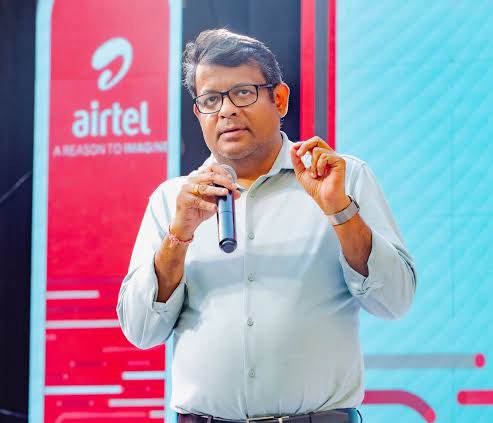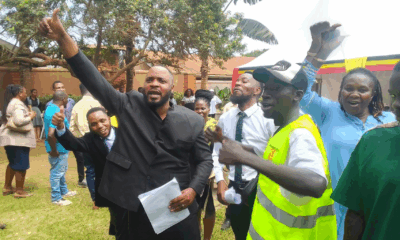Tech and Communication
Mobile Money Fraud Crisis Tests Uganda’s Digital Economy and Trust.
The recent statements from Bank of Uganda (BoU) Governor Michael Atingi-Ego and Airtel Uganda Managing Director Soumendra Sahu offer a revealing look into the growing mobile money fraud problem, the tension between public perception and official processes, and the urgent need to strengthen consumer protection in Uganda’s digital economy.
Mobile money has been one of Uganda’s most significant financial innovations of the past two decades, giving millions of citizens access to financial services without needing a traditional bank account. Its success has driven financial inclusion, reduced cash dependence, and facilitated faster, more transparent transactions.
However, the sharp rise in fraud — including SIM card swapping, phishing, and agent-led scams — threatens to erode this progress. The estimated Shs19.2 billion lost to fraud in 2022 underscores both the scale of the problem and the urgency of intervention. If left unchecked, this could reverse gains in digital adoption, as users might retreat to cash-based transactions out of fear and distrust.
Public Complaints vs. Official Channels: A Disconnect
Governor Atingi-Ego’s remarks point to a critical gap: most grievances are being aired on social media rather than through formal reporting channels. This disconnect has two consequences:
- Lack of Actionable Data: Without complaints being officially filed, the BoU and service providers lack verifiable data to investigate cases, identify patterns, and enforce compliance.
- Public Frustration: Customers perceive inaction because their social media complaints, while public, are not triggering formal investigations or regulatory action.
The Governor’s statement made clear that BoU is not aware of any unresolved complaints made through proper channels — a point that both highlights the problem and risks alienating customers who feel their frustrations are being dismissed.
The BoU has laid out a two-tier complaint resolution process: First, report to the mobile money service provider, as they have the systems to address transaction issues promptly. If unresolved, escalate to the Bank of Uganda — especially in cases involving systemic issues or regulatory breaches.
The emphasis on process is valid from a governance standpoint. However, there is a risk that this approach feels bureaucratic to customers who are already distressed by fraud losses. The challenge for BoU will be to not only enforce this process but also to simplify it and publicise it widely so users can navigate it easily.
Airtel Uganda’s Response: Owning the Problem
Airtel Uganda, the main target of recent social media complaints, has taken a public stance acknowledging customer distress. Mr. Sahu’s statement was conciliatory, expressing regret and outlining both technical and procedural reforms:
Anti-Spam Alert Service to identify and warn customers of suspicious messages. Process reviews to tighten controls, particularly around SIM card replacements. Commitment to law enforcement cooperation in fraud cases. Planned town hall meetings to gather direct customer feedback.
This multi-pronged response signals an awareness of both the reputational risk and the need for customer re-engagement. The move towards physical town hall engagements could help rebuild trust, but its effectiveness will depend on whether customer feedback translates into tangible action.
Despite these assurances, several systemic issues remain: Agent Oversight: Many fraud cases involve mobile money agents, highlighting a need for stricter vetting, training, and monitoring of agents. SIM Card Security: SIM swaps remain a common entry point for fraudsters, pointing to weaknesses in KYC (Know Your Customer) verification.
Consumer Education: Many customers lack awareness of fraud prevention best practices, making them vulnerable to scams. Reporting Fatigue: Victims who perceive the redress process as slow or ineffective are less likely to report incidents through official channels.
The Trust Equation
The success of mobile money hinges on public trust. Once that trust is compromised, digital adoption stalls, and the economic benefits of the platform economy are undermined. BoU’s insistence on formal reporting is rooted in the need for accountability, but this must be paired with faster response times, proactive fraud prevention, and transparent case tracking.
For service providers like Airtel Uganda, the challenge is twofold: to restore customer faith through stronger security systems and to prove responsiveness by resolving complaints swiftly and visibly.
The statements from BoU and Airtel Uganda reveal an urgent need to align customer experiences, regulatory processes, and corporate accountability. Uganda’s mobile money revolution has unlocked huge economic and social benefits, but without decisive, coordinated action to combat fraud, it risks losing the trust it was built on. The coming months will be crucial in determining whether this trust can be restored — and whether Uganda’s digital financial future can remain on track.
Comments



























